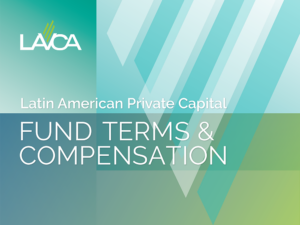Over the last few years, the record level of dry powder available for private capital investments around the world has increased competition for deals among fund managers, which in turn has diminished returns across alternative asset classes. In response, some limited partners (LPs) are seeking to reduce fee expenses and enhance net returns by concentrating their general partner (GP) relationships among managers who will accommodate more favorable fund terms. At the same time, they are seeking opportunities for separately managed accounts, co-investments, and direct deals across private markets.
This global trend has coincided with a period of macroeconomic and political volatility in major Latin American markets, contributing to a challenging fundraising environment for private capital funds dedicated to the region. As a result, GPs managing Latin America-focused private equity, venture capital, and real estate vehicles face increasing pressure from prospective LPs seeking greater alignment of interests.
In this context, the region’s fund managers will likely be compelled to update fund terms and governance practices to converge with those in other emerging and developed markets. In parallel, over the last two years LAVCA has observed a trend towards more competitive compensation and incentive for mid-level private capital professionals in the region, as founding partners seek to retain the best talent and keep investment teams intact. Again, this is driven at least in part by LP expectations.
LAVCA has produced its first Fund Terms & Compensation Report with the aim of providing a benchmarking tool for domestic and international GPs who are active in Latin America across the asset classes of private equity, venture capital, and real estate. The study identifies preferred fund terms and compensation strategies currently used by private capital fund managers investing in the region.


